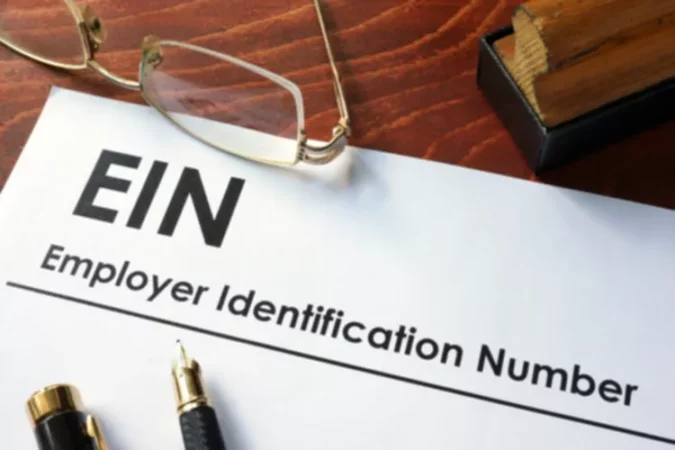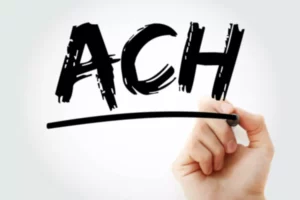So you want to start a business. If you have studied the process of creating a сompany in the United States, you may have come across the acronym EIN in marketing research. Like most aspiring entrepreneurs, you might wonder what an EIN is, why, and how to get one.
The Definition of an EIN Number
The term employer identification number means a unique identifier assigned to a business entity so that the Internal Revenue Service (IRS) can identify it. TINs are commonly used by employers to deal with financial matters. The number consists of nine digits and has the format XX-XXXXXXX. Businesses may apply for EINs directly through the IRS, which usually issues them immediately.
How Can You Use an EIN Number?
What is the purpose of such a number? It’s a type of federal taxpayer identification number (TIN). Like a social security number, your EIN is used to identify the business for tax purposes. You need it to apply for a credit card and a business license, open a business bank account, create official financial statements, hire employees, pay salaries, create vendor accounts, file taxes, and sign tax-related documents.
When Does the IRS Require an EIN?
The IRS has specific rules that determine when you need to apply for an EIN for your business.
If at least one of the statements is true, you need to get an EIN:
- Your business has employees.
- Your business is a partnership or corporation.
- Your business files excise.
- Your company withholds taxes on non-wage income paid to a non-resident alien.
All companies and organizations may benefit from having an EIN. Let’s talk about these benefits in more detail.
- Sole Proprietorship: if your small business is self-employed with no employees (and does not file excise tax returns or pension plans), you are not required to obtain an Employer Identification Number.
- Single Member LLC: if your business is a single member LLC with no employees (or excise tax obligations), you are not required to obtain an employer identification number. Single member LLCs must have an EIN if they have employees.
- LLC or multi-member partnerships: if your business structure is a partnership or multi-member LLC, you need to obtain an EIN number because the LLC must file a partnership declaration and provide a K-1 to LLC members.
- Corporations: if you have a C or S corporate tax structure, you must have an EIN for tax reporting purposes.
- Nonprofits: If your business is a nonprofit, you must have an Employer Identification Number for tax reporting purposes.
- Trusts and estates: certain types of trusts and estates need to get EINs under various circumstances.
Sole proprietors can only get one EIN. If it is necessary to change the owner or legal information, you must submit the relevant documents to update/change it. If we speak about businesses with multiple members, such as a corporation or LLC, there is no limit to the number of EINs.
How to Get an Employer Identification Number?
LLCs and corporations must be officially registered and approved before obtaining an EIN.
The fastest and easiest way to get it free is to apply online on the IRS website. Below there is some valuable information to help you request your EIN number from an IRS EIN Assistant:
- The IRS business hours to obtain your EIN are Monday through Friday from 7:00 am to 10:00 pm.
- Only companies from the US and US territories are eligible to participate.
- You must present a valid taxpayer identification number.
- Your application must be completed in one session and cannot be saved.
- Session times out after 15 minutes if not in use.
You will receive an EIN immediately after filling out the form. You may apply for an employer identification number by fax or mail by completing form CC-4.
Critical Advantages of Employer Identification Number
EINs are unique to the businesses to which they are assigned. Numbers never expire, and the same numbers are never re-issued to another company, even if the original employer goes out of business.
The main benefit of getting one is the ability to work. Without this, you will not be able to run your business. You have to apply for an Employer Identification Number before starting work. You will also need it to do the following:
- Hiring and paying salaries to employees.
- Opening bank accounts, obtaining business credit, and investing free cash.
- Management of corporate funds.
- Filing business taxes and registering state taxes.
Obtaining an EIN allows you to separate your finances from your business. It enables you to protect your personal information from identity theft.
Can You Close Your Employee Identification Number?
Once you receive an EIN, this identification number will forever be associated with you and your company. It becomes permanently associated with that entity, and the IRS can never technically revoke it.
The EIN is an essential part of the required financial reporting. Even if an organization never files a return, it still needs an EIN. Once it has been issued, the identification number can be used later if needed.
If you received an ID number but later decide you don’t need the number, the IRS may close the business account associated with you. It’s true for startups that never launch. You must send the physical letter with the legal name, work address, EIN number, and reason to close the account.
Opening a business is an exciting undertaking, and dealing with paperwork is the less pleasant part of entrepreneurship. But taking the necessary stages to properly and legally file your company will save you time, confusion, and headaches.


















